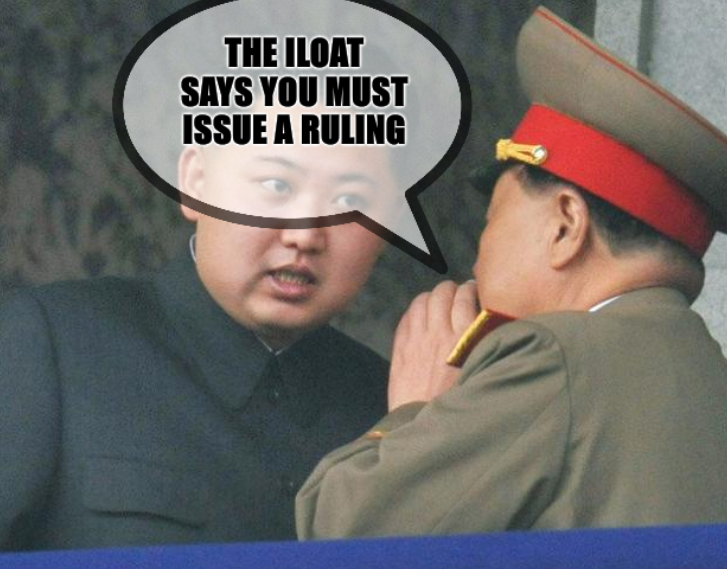ILOAT Judgment No. 4394: Administrative Tribunal of the International Labour Organization (ILOAT) Sends Vulnerable People Back to a Stacked (Kangaroo) Court of the President
The understaffed EPO eats/kills its own


THE article we published yesterday was mostly the decision, ILOAT Judgment No. 4394, in full (as HTML). It served to show how the ILOAT nonchalantly sends complainants to the lion's den, which is exactly what they attempted to escape when they reached out to ILOAT. The decision is noteworthy because it shows what typically happens or how ILOAT responds to many cases, lumping them together and barely tackling injustice, sometimes throwing some rather negligible fees or compensation at the complainant (barely compensating for the time, let alone the moral damage).
This is my personal interpretation of that decision, based on numerous people I spoke to over the years. And yes, while it's true ILOAT is the sole/last recourse, things can be improved. Years ago we noted that it took ILOAT nearly a decade to rule against Battistelli "reforms" - that was years after he had already left and lots of damage was irreversible.
Having said that, my interpretation is not shared by everyone. "I have just read your publication," one reader said, "and I must say that my interpretation of Judgment 4394 differs. I will not try to defend the Tribunal but in this case their decision was legally perfect."
"Consider the Tribunal as an Appeal Court, because disputes should be resolved before appealing. In the case of the EPO disputes should be resolved internally and the first instance is the Appeals Committee [ApC]. I know the system is flawed because a) the ApC is not truly independent and b) the president is not bound by the recommendations of the ApC."
"In the present case the EPO internal appeals committee rejected in a summary decision the cases. This was adding insult to injury for the appellants. The f***ing president didn't give a f*** about the f***ing cases of the f***ing incapacitated employees."
"Remedy was sought in Geneva. The ILOAT couldn't decide on the merits of the cases because in the first instance the EPO disregarded the questions. The only possibility was the to send the cases back to the Office and oblige the Office to consider the claims of the requesters. The Tribunal had no other choice. Moreover, the Tribunal sent a clear signal that the requesters would win on the merits if the Office doesn't give them satisfaction."
"The problem is the Office in the case. Because they abuse the system by using a summary procedure. I imagine this is law practice imported from North Korea. The Office plays with nerves, health and time of weakest personnel, the recipients of an invalidity pension.
"This is tragic because some of them may have not enough time left to reintroduce a case in Geneva. And the office is aware of that."
I previously spoke to someone who could not type the legal material fast enough due to a disability. The EPO hired many lawyers and had no mercy, in effect causing aggravation of the condition by tight deadlines and heavy paperwork (volume). In effect, the Office is "lawyering up" against disabled people. The ILOAT's communications, in turn, showed little or no sympathy towards the complainant, who had already suffered enough.
It's very difficult to forget what happened back then.
What is Geneva's stance on people with disabilities?
The judgement from ILOAT, irrespective of ILOAT's stance, shows how the EPO's management cabal treats the most vulnerable employees that are people with disabilities / incapacities (there are 5 plaintiffs in the case), as EPO insiders tell us, and we'll explain this or say more on that in the next part.
Tomorrow we may or may not end this mini-series, as newer scandals are brewing at the EPO and we're eager to cover those too. It has been very busy lately. █
